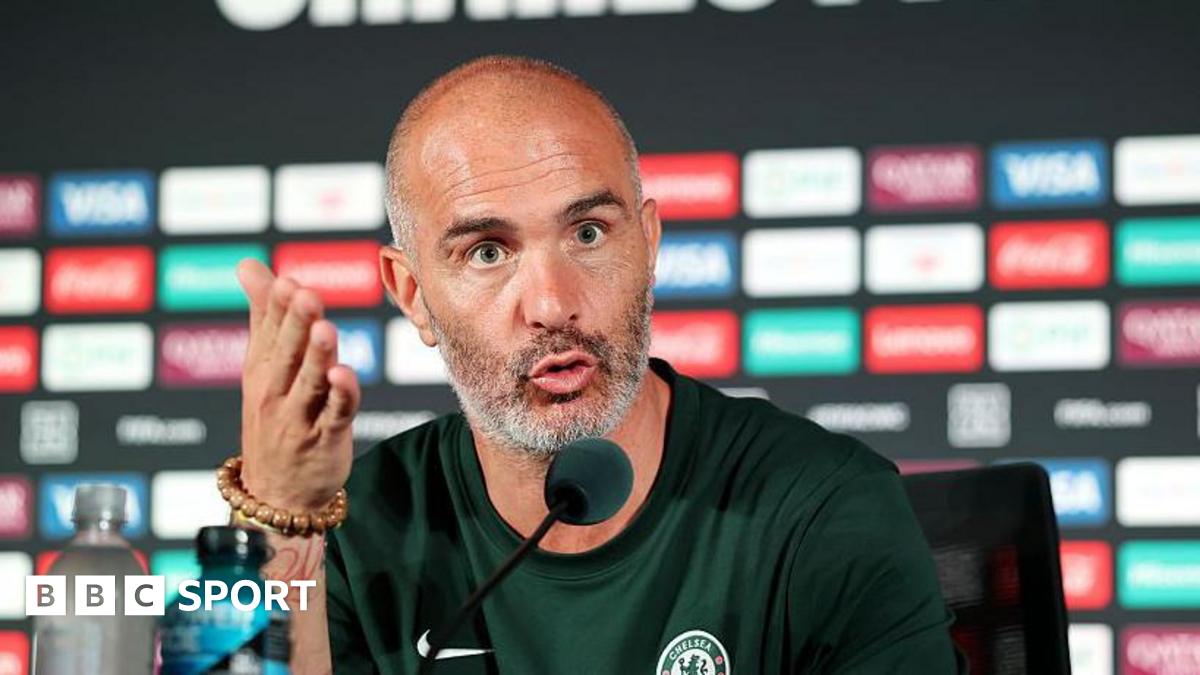'Not football' - Maresca questions Club World Cup hosts after 'joke' delay

Maresca Slams Club World Cup Scheduling After Weather Delay Chelsea manager Enzo Maresca has heavily criticised the organisation of the Club World Cup in the United States, labelling the two-hour suspension of their last-16 tie against Benfica due to extreme weather as "a joke". The match, eventually won 4-1 by Chelsea after extra time, concluded at 01:39 BST on Sunday, lasting nearly four and a half hours due to the interruption.
Maresca's outburst comes amid concerns about the suitability of hosting major football tournaments in the US during the summer months, with the 2026 World Cup, co-hosted by the US, Canada, and Mexico, looming large. The tournament has already seen multiple matches disrupted by summer thunderstorms and extreme heat.
Maresca Questions US Suitability Speaking after the match in Charlotte, North Carolina, Maresca didn't hold back in his assessment. "I think it's a joke, to be honest," he stated. "It's not football. It's completely something new; I struggle to understand. If you suspend seven or eight games then it's probably not the right place to do the competition. It's not normal to suspend the game. In a World Cup, how many games are suspended? Zero probably. In Europe how many games get suspended? Zero."
He added, "We've been here two weeks and they've already suspended six or seven games. There is some problems for me personally."
Match Disrupted: A Timeline of Events The Chelsea-Benfica match was significantly impacted by the weather delay. Here's a breakdown of how the game unfolded:
09:00 BST: Kick-off 22:53 BST: Match suspended in the 85th minute with Chelsea leading 1-0. 00:47 BST: Match restarts after a two-hour delay. 00:54 BST: VAR check awards Benfica a penalty. 00:57 BST: Angel di Maria scores the penalty, equalising for Benfica. 01:01 BST: Full-time (1-1). 01:39 BST: End of extra time – Chelsea win 4-1.
Impact on Chelsea's Performance Chelsea players expressed their frustration at the lengthy delay. Defender Reece James admitted, "It was quite disruptive when you're in the flow of the game. Lots of substitutions - trying to get warm and stay warm. It was difficult and the climate was very hot and humid."
Maresca elaborated on the impact, stating, "For 85 minutes we were in control of the game... And then after the break the game changed completely." He described the scene inside the dressing room during the stoppage, highlighting the difficulty of maintaining focus and momentum.
Expert Analysis: Weather Concerns for 2026 World Cup Football finance expert and sports business analyst, Dr. Dan Plumley from Sheffield Hallam University, weighed in on the situation. "The financial implications of these delays are significant, impacting broadcast schedules, stadium operations, and potentially even player welfare," Plumley stated. "While FIFA has insurance policies to mitigate some of the financial risks, the reputational damage to the tournament and the host nation could be far more lasting. Furthermore, this highlights the increasing need for robust risk assessment and contingency planning in major sporting events, particularly in the face of increasingly unpredictable weather patterns exacerbated by climate change."
Historical Context: Weather Disruptions in Football While extreme weather causing match postponements or suspensions is not entirely unprecedented, the frequency of such incidents during this Club World Cup has raised eyebrows. Historically, football associations have often prioritized completing matches, even in challenging conditions. However, increased awareness of player safety and more stringent safety regulations, particularly in the US, have led to a more cautious approach.
The 2022 World Cup in Qatar, moved to winter months to avoid the intense summer heat, serves as a recent example of a major tournament adaptation to climatic conditions. However, finding a universally suitable time for the 2026 World Cup, considering the vast geographical spread of the host nations and varying seasonal weather patterns, presents a significant challenge.
FIFA's Response and Potential Solutions FIFA has acknowledged the issues, with Arsene Wenger, Head of FIFA's technical study group, stating, "It's not ideal... but, as well, when you organise a competition you have [to put] security first."
Possible solutions being considered include utilising stadiums with retractable roofs where available, implementing more flexible scheduling to avoid peak heat and storm periods, and enhancing weather monitoring and forecasting capabilities. However, the fundamental question remains: is the US, in the summer, a suitable location for hosting major football tournaments without significant disruption?
FIFA has been asked for an official response to Maresca's specific comments.
Originally sourced from: BBC Sport Football
